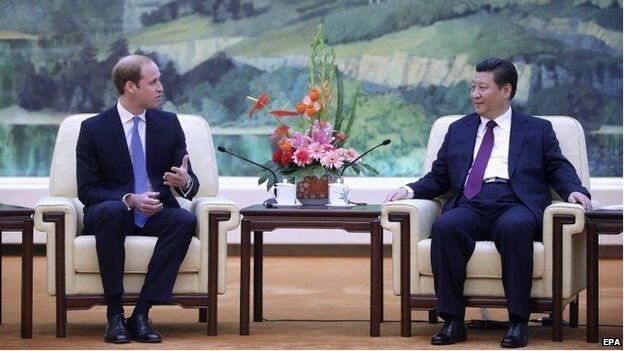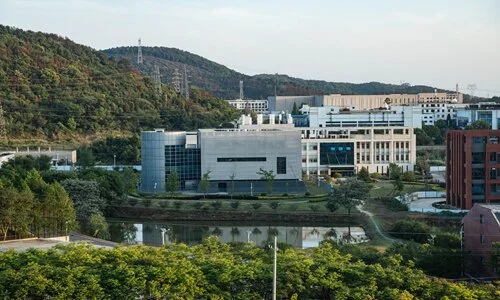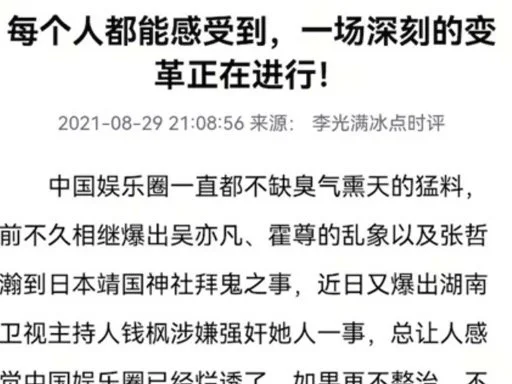Xi knows you know
August 31, 2020
China Daily appears to have a new feature, “Xi’s Thought”. Today’s pearl of wisdom: “The planting structure should be adjusted to actively develop water-saving agriculture.” The ulterior message: Xi knows everything.
This, of course, isn’t much different from the pamphlets published during the Cultural Revolution, in which Chairman Mao would exhort the people to “plant grain deeply”, and the mere chanting of Maoist catechisms would cure cancerous tumours.
Imagine having to write this. Imagine having to typeset it to ensure it appears right at the top of the page.
I dig out Christopher Hitchens’ feisty contribution to a series of “counterblast” pamphlets published in the late 1980s and early 1990s, in which he excoriates the Royal Family and its role as the cornerstone of the disfigured, tottering edifice that was (and is) the British state.
Hitchens refers to the similarities between Britain’s attitudes to the royal family and the worship of inexplicably high-ranking nonentities like the Ceausescus in Romania. “We learn from history the subtle and deadly damage which is done to morale by the alternation between sycophancy and resentment,” he writes.
Think of the propaganda bubble that Xi Jinping and the Chinese Communist Party have now built around themselves. I take a few moments to contemplate the despair that anyone - from the highest apparatchik to the humblest journalist - must feel when he or she is compelled to enshrine some banality from the Supreme Leader into every policy document, every law, every guideline, every state media report. The word resentment wouldn’t even begin to cover the nausea and despair it would induce as I yet again force myself to type out the words, “As Xi Jinping said in his important speech..”
It is clear that no one, anywhere, would choose voluntarily to waste a sizeable share of a country’s scarce resources to fluff a pampered princeling’s ego. China’s leaders should know better than anyone else that the adulation - shaped by propagandists and enforced using the state’s monopoly on violence - is unlikely to run very deep. Left to their own devices, the public and the media would very quickly start exhibiting the same sort of open contempt for their leaders that they show in the United States and Europe. And the look on Xi Jinping’s countenance would no doubt be as aghast as Ceausescu’s on December 21, 1989, when he began one of his tedious speeches about socialism and the crowd that had gathered in Bucharest’s Revolution Square finally felt it was time to show the old sod precisely what they thought of him.
In Inner Mongolia, protests have broken out after Beijing said it would impose a new national curriculum on its schools. Beijing insists this policy isn’t specifically directed against ethnic Mongolians, who have certainly suffered enough. This is more about an ongoing programme to centralise power still further and establish absolute control over absolutely everything. It is about forcing every school in every corner of the country to teach the same classes in politics, history and Chinese language, whether it is in Tibet, Xinjiang or rural Guangdong. It is all of a piece with Xi’s Tibet speech at the weekend about instilling “a love of China” in the hearts of Tibetans.
A western upbringing leads one to think that Xi Jinping and the current generation of leaders are overreaching, that the arc of human history bends towards freedom and their attempt to centralise their power still further will create an equal and opposite reaction among the public. But I am no longer entirely confident that this is the case. By and large, the instincts of Chinese people are like the instincts of any other nationality: they yearn to be free and self-determining, and they resent people poking their nose in their private business, but political and technological developments are now shifting in favour of oppression and restriction and censorship. People by and large tend to come to terms with an oppressive force and go along with it. Resistance hurts, and only makes sense when compliance becomes even more painful.






